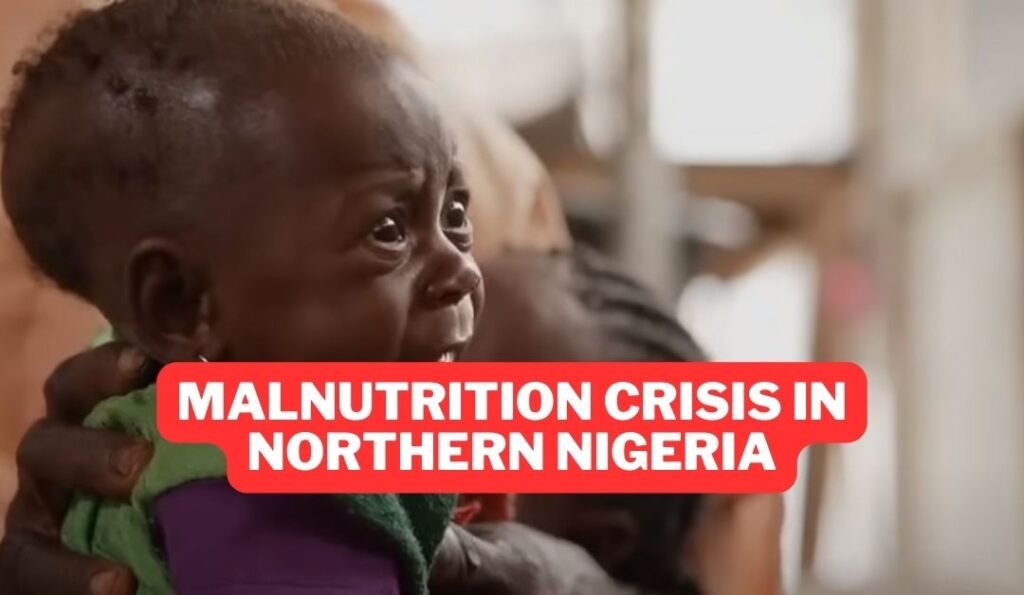A severe malnutrition crisis in Northern Nigeria has emerged, with 4.4 million children under five acutely malnourished, more than doubling last year’s figures according to the World Food Program. Families in the region are struggling with high food inflation and persistent security threats, leaving many unable to adequately feed their children.
The Struggle for Survival
In the main city of Katsina State, Medina Maanu from the BBC reports on the ground, providing a stark picture of the crisis. Seven-month-old Iliya is one of many children waiting at a malnutrition clinic run by Doctors Without Borders (MSF). Iliya lost her mother a few months ago, and her aunt, now her caregiver, is struggling to produce enough breast milk for both her own baby and Iliya.
“On days I find food, the babies can eat. But on days I don’t get to eat, they’ll keep sucking on my nipples and cry because of hunger,” Iliya’s aunt shares. “It hurts me to see other kids looking chubby and healthy, but she keeps getting smaller by the day. That is why I brought her here.”
Overwhelmed Healthcare Services
The number of acutely malnourished children in Northern Nigeria has surged from 2 million last year to 4.4 million this year. MSF’s services are overwhelmed, and healthcare workers are facing the emotional toll of the crisis.
“Seeing them in that condition affects me mentally because you make all provisions for the patients to be better, but yet still you have mortalities at the end,” one MSF worker explains.
Jamila, another mother at the clinic, brought her baby in after he became severely malnourished.
“He became malnourished right after I weaned him off my breast. We used to farm, but now we can’t do that anymore,” she says, highlighting the impact of banditry and displacement on their ability to sustain themselves.
Impact of Insecurity and Displacement
Bandit attacks have driven many farmers off their land, exacerbating food insecurity. Alhaji Abubakar, who used to own a productive farm, now lives in the city with his large family, struggling to find enough food.
“We eat food once a day. I wish I could go back to my farm,” he laments. “For someone who used to give away food, now I am being assisted with food. That is enough reason for my heart to explode.”
The Nigerian Army has recently re-strategized its fight against bandits to help farmers return to their land. Katsina’s Deputy Governor also mentions efforts to tackle the root causes of hunger, including distributing subsidized or free grains and conducting joint security operations to clear bandit camps.
Dispute Over Malnutrition Data
Despite the reported increase in malnutrition, the Deputy Governor disputes the figures, suggesting the season has just started, and accurate numbers are not yet available. However, for families like Jamila’s, the situation remains dire, and they await a return to their homes and farms.
“My wish is for my son to get better and for this situation to become a thing of the past,” Jamila says. “I pray to God to be able to go back to our farms so that we can feed our family.”
Until Nigeria overcomes its security and economic challenges, vulnerable children will continue to suffer the devastating consequences of malnutrition.

